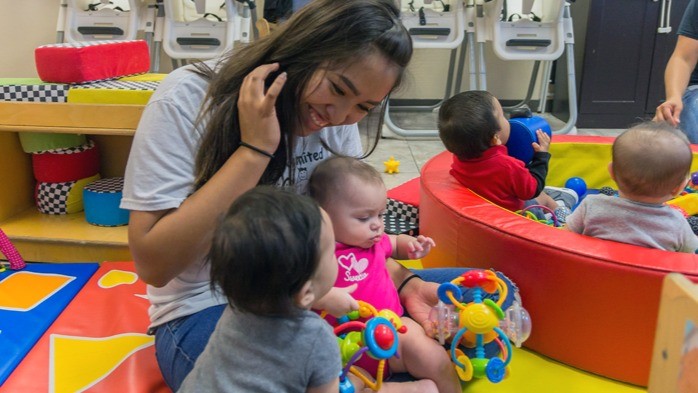Jury Profiling: Are Caretakers More Empathetic Jurors in Catastrophic Child Cases?
After reviewing over 350 test cases we can confirm that Caretakers shape the outcome in catastrophic child Cases.
Specifically, they are more profoundly upset by the senseless death of a child than men due to a range of social and psychological factors, including societal expectations, socialization around care giving, and empathy response.
Studies have shown that Caretakers on average, display higher levels of empathetic concern, particularly toward vulnerable populations like children.
In the world of personal injury law, one powerful yet often underestimated factor can profoundly sway jury decisions: the unique empathy and protective instincts of those in care giving roles.
Social and psychological research reveals that caretakers—whether they are parents, teachers, healthcare providers, or others regularly engaged in nurturing roles—bring an extraordinary level of compassion and duty to cases involving the untimely and tragic death of a child.
This profound emotional connection to the vulnerability of children makes them uniquely susceptible to strong emotional responses, which can be a key influence in courtroom dynamics.
As society increasingly recognizes the psychological depth of empathy-driven decision-making, personal injury lawyers are strategically tailoring case narratives to engage these instincts among caretakers on a jury.
Understanding how to tap into this care giving lens is not just insightful—it’s powerful. Here’s how it works and why it matters in cases that demand justice for the most vulnerable victims.
The Emotional Lens of Protector
Studies in social psychology show that individuals in care giving roles report notably higher levels of empathetic concern, especially toward children.
This empathy isn’t merely a personality trait; it’s often deeply ingrained through years of socialization. Society teaches caretakers to prioritize nurturing, and this message comes through in everything from child-rearing advice to the expectations placed on teachers and healthcare workers.
The idea of protecting those unable to protect themselves becomes a core part of their identity.
Take, for example, a case involving a young child who dies tragically in an accident due to alleged safety protocol failures. In such cases, caretakers on the jury may resonate with the details in ways others might not.
When they hear that multiple safety checks were missed or protocols were not enforced, they may not just see a lapse in duty but a profound breach of moral responsibility. Their care giving mindset amplifies the stakes, making it not only about the child’s life lost but about the communal duty to protect the vulnerable.
The late psychologist Carol Gilligan’s work on moral reasoning revealed that caretakers, are likely to view a case through a moral lens that emphasizes care and responsibility over abstract rules or rationalizations.
Consider another case where a child’s death is the result of neglect or poor oversight at a daycare. Caretakers on the jury might see this as not just a failure in duty but as a violation of a sacred trust. This moral intuition goes beyond legal fault—it touches on deep, instinctive reactions to vulnerability.
When faced with a child’s catastrophic death, caretakers may see the incident as an affront to the values they live by, especially if they believe the tragedy could have been avoided. This reaction may lead them to push for accountability, even for punitive damages, seeing it as a necessary step in upholding the ethical standards they hold dear.
For example, a teacher might feel an acute personal responsibility if they are on a jury for a case involving a child who died due to a school bus accident resulting from a negligent driver.
As a caretaker, the teacher may interpret the tragedy through their own lens of responsibility, questioning how such an incident could have been prevented, and even feeling an empathic connection to the child's family.
This perceived failure to uphold a societal duty of care becomes a call to action, fueling their desire to see accountability and justice for the loss of life. The grief that caretakers feel in such scenarios is intensified by their sense of what could or should have been done to prevent such a tragedy.
Why This Matters: The Future of Empathy-Driven Juror Strategies
In an era where empathy is recognized as a driving force in social and judicial outcomes, understanding the psychology of caretakers can be a transformative approach for personal injury lawyers.
Empathy is no longer a soft skill; it's a powerful tool in the courtroom, especially in cases involving child fatalities.
When lawyers understand the social and psychological factors that influence how caretakers respond to child tragedies, they can craft narratives that resonate deeply with these jurors’ protective instincts, fostering an environment where empathy drives justice.
For personal injury attorneys handling catastrophic child death cases, this knowledge is invaluable.
By framing cases around preventability, vulnerability, and moral duty, lawyers can engage caretakers in a way that not only honors their instincts but also compels them toward a verdict that upholds the highest standards of care and accountability.
It’s a strategy that transforms empathy into action, ensuring that justice is served for those who need it most.




